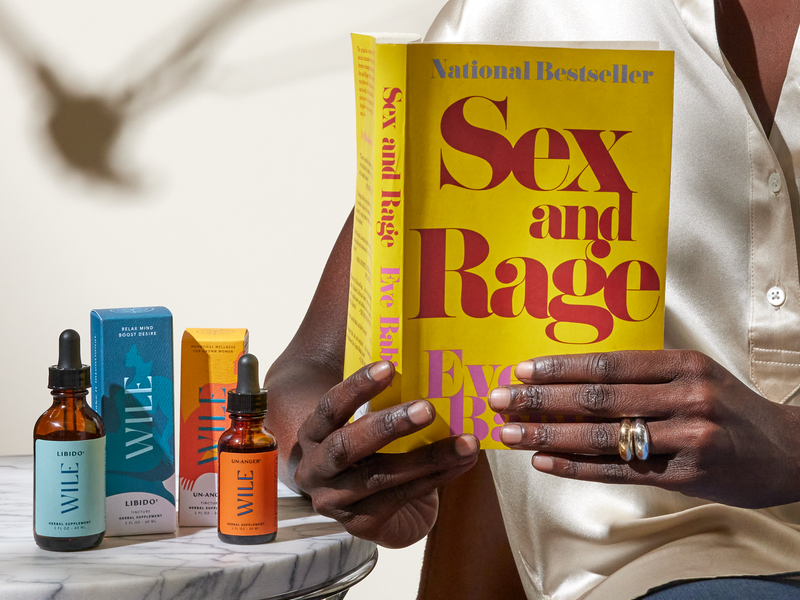I heard it from a 50-ish friend a year or two ago.
“I’m doing great, but my face is melting.”
Ha ha ha. Uh, what?
Now the truth and the whys behind that terrifying statement are abundantly clear.
Much of what we call “aging” isn’t just about time passing. It’s not just the consequences of youthful, generational transgressions like cigarette smoking or sunbathing in the SPF 2 or sunbed era.
Of course, those didn’t help but stop blaming yourself.
The biggest factor in your changing skin after 40 (or after 50): Estrogen.
You may see your skin change abruptly. It’s part of those shifting sands of hormones silently taking place in our bodies from age 40-ish on up.

Yep, estrogen has been quietly running our sleep, focus, multitasking and beauty lives all these years, not just our menstrual cycles.
To quote one study:
“Many women report a sudden onset of skin aging several months after menopausal symptoms begin. The menopause… results in thinner skin, an increase in number and depth of wrinkles, increased skin dryness, and decreased skin firmness and elasticity.”*
Unfortunately for those of us over 40 (or 50), it’s a multi-pronged fountain of youth and health for our skin. So specifically, what do estrogens do for skin?
- Estrogens are linked to keeping the collagen flowing that keeps skin firm and plump (think droop, wrinkles).
- Estrogens modulate keratinocytes, the cells that make up 90% of the epidermis and its self-protection. Yes, skin thins post-menopause, making it less plump, firm and resistant to changes.
- Estrogens also support fibroblasts, which are the connective cellular structure of skin. Fibroblasts keep sags away and contours in place.
- Estrogens also promote antioxidant activity within the skin, which fights off oxidative stress and the effects that result. Think redness, slowing of cells, further collagen and structural depletion.
- Add to that, possible increased sun sensitivity and sun damage.
- Estrogens also help the body hold onto its healthy moisture, like its natural hyaluronic acids. You may notice skin (and your eyes!) are much drier than before.
So that’s what she meant by her face melting.
Of course estrogens are responsible for far more. They’re also keeping your heart and bones healthy, immunity up, your mind sharp and other critical health factors going strong. But this is a post about beauty so let’s keep things about skin for the moment.
What Can You Do?
The good news: hormone supplementation has shown it can help mitigate and even reverse some of these skin declines. Studies** have reported that both Hormone Replacement Therapy (HRT) and phytoestrogens can have positive effects on your skin, as well as indications it can benefit the other functions estrogen is responsible for in the body.
Of course, there’s been a lot of fear around estrogen supplements during perimenopause and post-menopause. It’s important to note that most of those fears center around just one 20 year-old study.
That said, estrogen is not for everyone. It’s important to have all the information and speak to a health professional who is well-versed in perimenopause and hormone options. Sometimes these hormonal and perimenopausal specialists may be nurse practitioners, integrative health practitioners or naturopathic physicians as well as OB/GYNs.
Our Wile Perimenopause Support supplement includes phytoestrogens along with nervines to calm the nervous system and adaptogens for stress.
Phytoestrogens have lower estrogenic levels than synthetic or bioidentical hormone supplements. This supplement can be used in conjunction with HRT, but always consult your provider first.
And some studies indicate that topical phytoestrogen ingredients in skincare have real promise for reaching the estrogen receptors in skin and showing both positive effects and more long-term resilience.
Everyday Actions for Skin Over 40
Other ways you can effectively step up your skin regimen to counteract this phenomenon:
- Up your antioxidants in your diet - from vegetables to coffee.
- Choose a diet richer in phytoestrogens, such as soys and resveratrol (found in red grapes, blueberries, cranberries, peanuts, true cocoa and red wine if you already drink alcohol.
- If you aren’t using a high-quality vitamin C serum and retinol, bring them into your regimen. These are the “anti-aging” products that most dermatologists agree make a real difference in skin quality.
- Along with sunscreen, which is non-negotiable. Slather it on, wear a hat, do what you need to in order to guard skin from the sun.
- If hormones aren’t right for you, fractionated laser treatments are the most clinically proven to help the skin boost collagen production.
To be clear: We are NOT advocating expensive procedures, skincare or any other cosmetic measures to take unless you want to do them for your own self-confidence and sense of self.
A Word On the Beauty Biz & Self Worth
It’s a lot to take in. And no one told us.
Why? The beauty industry wants us to believe that if we wear sunscreen, hydrate and use a 22-step regimen, we can look forever 33. And while women over 35 are a huge market for beauty products, representation isn’t great. Beauty culture has started to talk pro-aging, then retouches a 50-year old to look smoother than a 5-month old. Influencers deny procedures and retouch beyond Vogue’s wildest 1999 dreams.
A few wrinkles do not make us the ghoul from Tales from The Crypt. Let’s acknowledge that we aren’t meant to look 25 forever. This “never age” phenomenon is cruelly recent, fueled by filters and serious medical procedures, and beauty culture is the new diet culture. We’ve been conditioned to believe our worth is tied to traditional notions of youth and beauty. Even if we don’t believe all the B.S., it doesn’t prevent the biases of others from impacting how they treat or value us.
And it’s not fun to see our physical selves change in ways that we can’t control and do not fully recognize. And there is nothing shallow about expressing that discomfort.
The more we can talk about the complex feelings we confront in all of this, the better.
Sources:
* Effect of estrogens on skin aging and the potential role of SERMs 2007 Sep; 2(3): 283–297. Susan Stevenson1 and Julie Thornton2 Clin Interv Aging. 2007 Sep; 2(3): 283–297.
**Estrogens and aging skin Julie Thornton*Dermatoendocrinol. 2013 Apr 1; 5(2): 264–270.
*** Dietary Management of Skin Health: The Role of Genistein Natasha Irrera 1,†, Gabriele Pizzino 1,†, Rosario D’Anna 2 , Mario Vaccaro 1 , Vincenzo Arcoraci 1 , Francesco Squadrito 1,*, Domenica Altavilla 3 and Alessandra Bitto 1 1 Department of Clinical and Experimental Medicine, University of Messina, Messina 98125, Italy; Published: 17 June 2017
**** Menopause and the Skin: Old Favorites and New Innovations in Cosmeceuticals for Estrogen-Deficient Skin, Edwin D. Lephart & Frederick Naftolin, Dermatology and Therapy (2021)
IMAGE CREDIT: Unsplash, Jocelyn Morales
This article is intended for informational purposes and is not intended to replace a one-on-one medical consultation with a professional. Wile, Inc researches and shares information and advice from our own research and advisors. We encourage every woman to research, ask questions and speak to a trusted health care professional to make her own best decisions.




